Role-Playing Students Tackle a Burning Question
By Tom PorterThe year is 1829. The setting is a sweltering courtroom in the British-ruled Indian region of Bengal. The debate inside the courtroom is also heated, as administrators, political and religious leaders, reformers, and others discuss a proposal to ban “Sati”—a controversial, centuries-old custom in which a widow burns herself to death on her husband’s funeral pyre.
In reality, we are in the telepresence room at Bowdoin’s Hawthorne-Longfellow library, where Andrew W. Mellon Postdoctoral Fellow in Religion Anya Golovkova is presiding over a class discussion—only this is more than a straightforward classroom debate. The course is called Gods, Goddesses, and Gurus: Gender and Religion in South Asia (REL 2280/GSWS 2292/ASNS 2740), and members of the class are playing a game called A virtuous woman? The Abolition of Sati in India, 1829, an activity in which each participant assumes the role of a particular character.

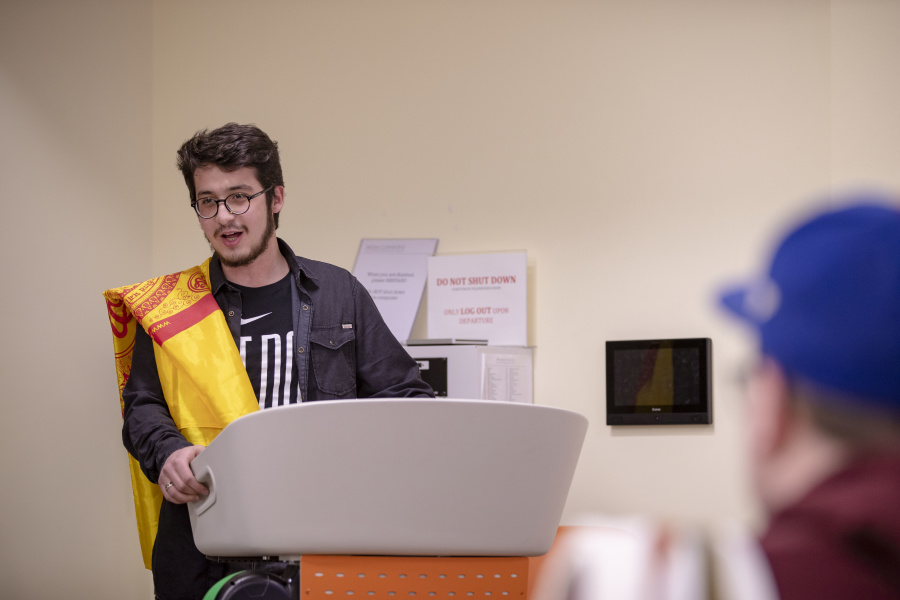


It’s part of a new and increasingly popular pedagogical technique in the humanities called Reacting to the Past (RTTP), in which students, working from a common set of documents, can assume the role of a character. They then have to engage in a classroom discussion representing the views of their character. Students can be thrust into a variety of scenarios: they may become, perhaps, “Framers of the Constitution,” critics of Galileo, proponents of democracy in ancient Greece, the list goes on.
In this particular classroom, they might be British colonial officials, Bengali caste leaders, Hindu reformers, or Christian missionaries. The commitment of the students is impressive. Even before the class officially begins, many of them have already assumed their characters and are talking to, and arguing with, each as other as such.
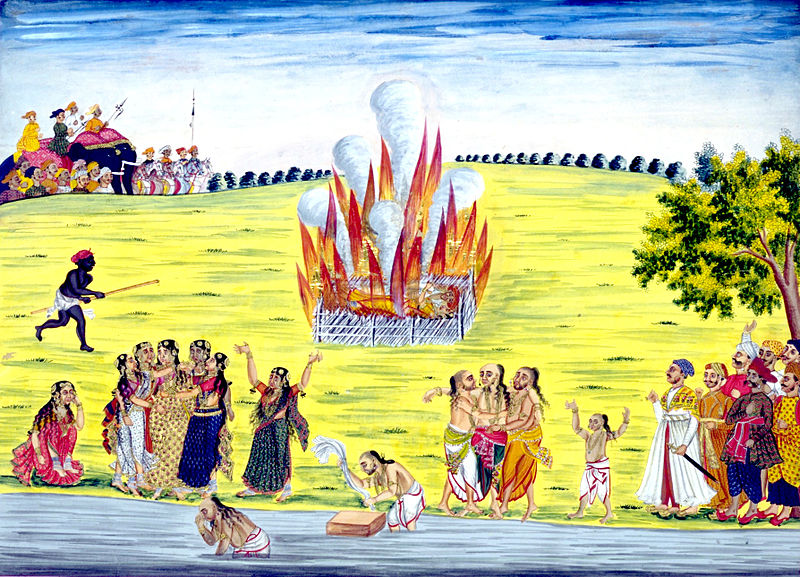
Sati was, without doubt, a brutal practice. Some widows were expected to join their late husbands on the funeral pyre as an act of piety and devotion, and women who refused to do this were often shunned by family and society, ending up with little prospects in life. The British decision to outlaw it, however, was resented by some Indians as an interference in domestic affairs by a colonial power, as the students playing the game found out.
“Opposition to the banning of sati had a lot to do with resentment at British control over Indian affairs,” says Jacob Kassama ’22. “Through this game, I learned that there are not just two sides contributing to the debate about Sati: one for and one against,” he adds.
“It is such a creative and engaging way to learn history. I think one of the biggest advantages to RTTP is practicing empathy, especially if one is put in a role in which their character’s beliefs are fundamentally different from their own.”
—Hailey Aronson ’22.
Renita Shivnauth ’21 was originally assigned the role of Fanny Parkes, a travel writer and one of the few women to take part in the debate. Due to another student’s absence in this particular session, however, she also had to assume the role of the British Governor General Lord Bentinck, meaning she was responsible for running the proceedings. “When we read scholarship about religion, we assess it as outsiders,” she says, “whereas, through RTTP, we are immersed in the society.”
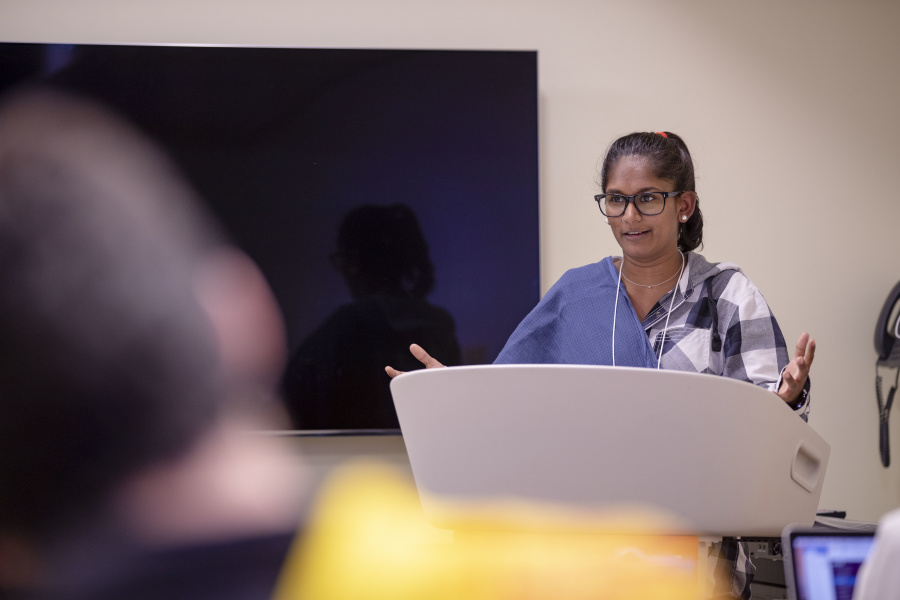
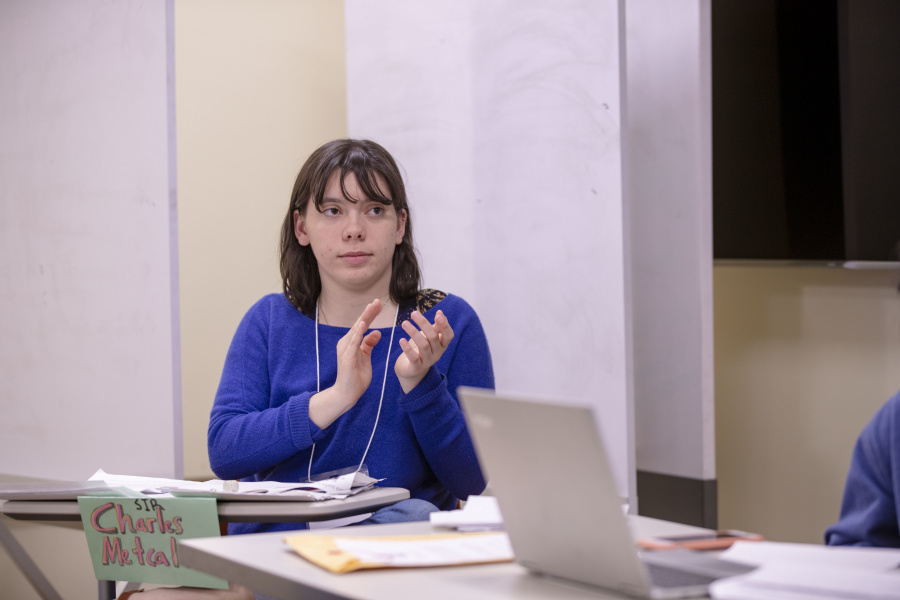
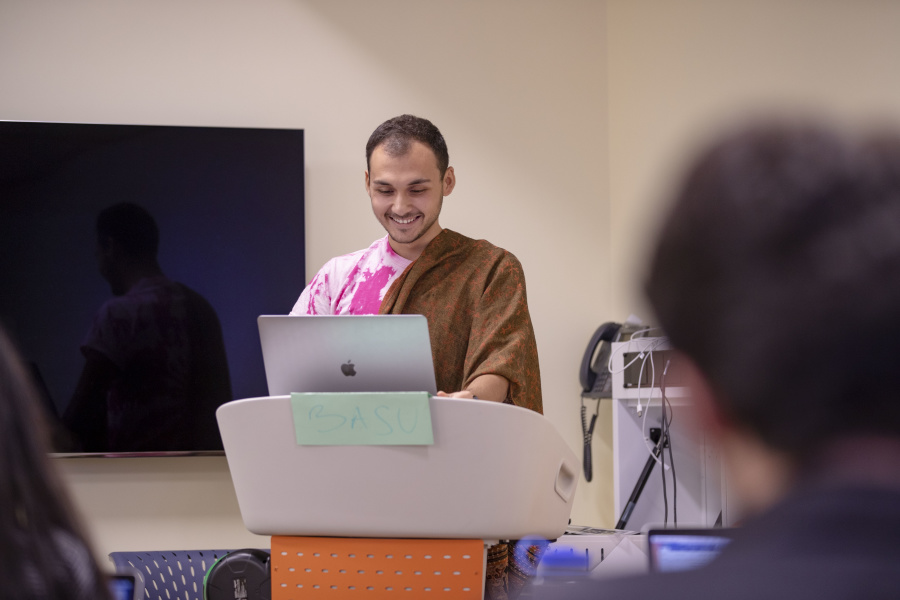
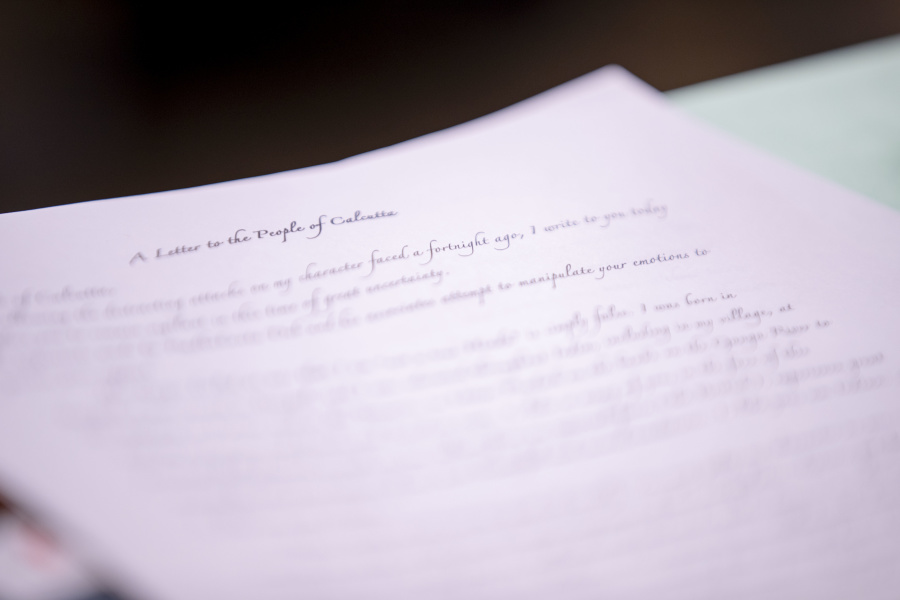
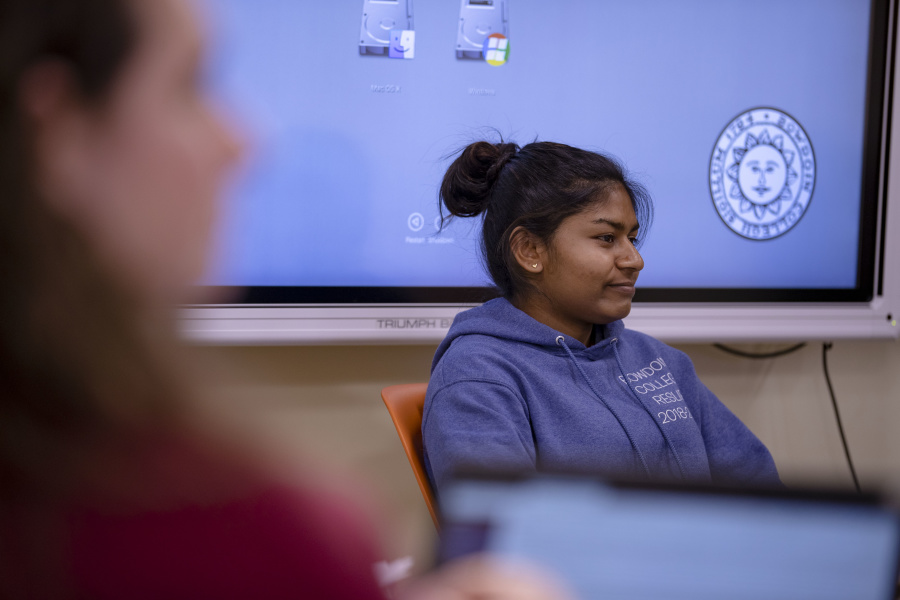
“When I first heard about Reacting to the Past, I was intrigued about an opportunity to create an inclusive, liminal classroom environment that contributes to lasting transformative learning,” says Golovkova. “Every single time I have used RTTP, I've experienced moments of awe, when I listen to students' speeches and realize how deeply they have thought about their sources and the issues at the crux of the game to craft truly exceptional rhetorical work.”
Bowdoin College is hosting a three-day workshop next week (June 10-12, 2019) dedicated to exploring the potential of games in the classroom. Instructors will be introduced to RTTP through a day-long game entitled The Trial of Anne Hutchinson: Liberty, Law, and Intolerance in Puritan New England. The workshop also features a session, presented by Golovkova, on diversity and accessibility in classroom games.